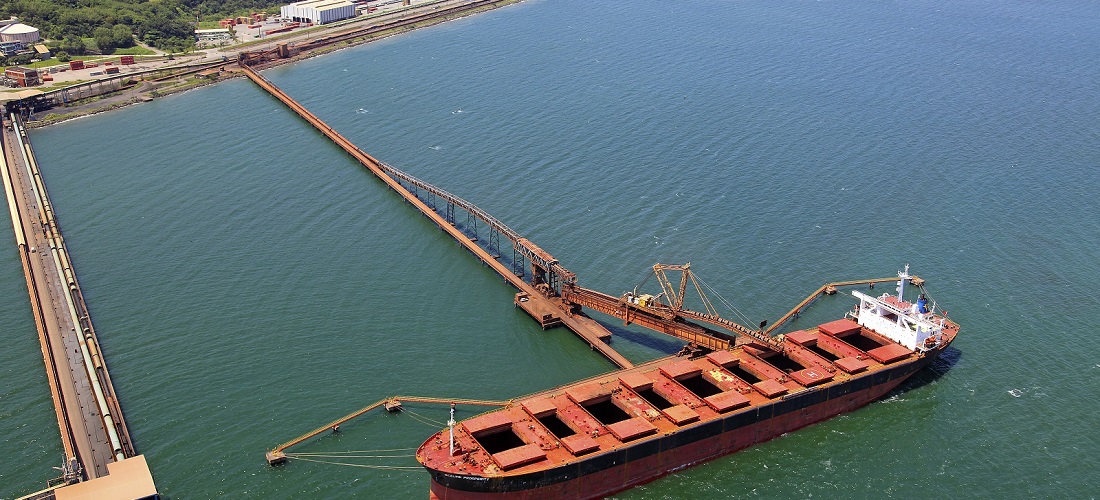
Itaguaí city government rejects iron exports to protect mangroves
Aug, 01, 2022 Posted by Gabriel MalheirosWeek 202231
The city government of Itaguaí, on the southern coast of the state of Rio de Janeiro, started a program to restore mangroves in an area covering 6,000 hectares, the equivalent of 6,000 football fields. The project takes place at the same time Mayor Rubem Vieira has been moving to prevent the installation of a terminal dedicated to iron ore exports in Itaguaí.
The mayor considers that iron ore exports are one of the leading causes of environmental pollution in Sepetiba Bay, where the Port of Itaguaí is located, which serves to export the ore brought from Minas Gerais by Vale and CSN. Furthermore, the activity does not generate tax collection in Rio de Janeiro but in the state where the ore is extracted. In addition, according to the City Hall, the few jobs created locally do not pay off.
See below the track record of iron ore exports through the Port of Itaguaí in terms of volume from January 2021 to June 2022. Datamar’s business intelligence team collected the data through the platform DataLiner, available for a demo at the link below.
Iron Ore Exports via Itaguaí | Jan 2021 – Jun 2022 | WTMT
Source: DataLiner (click here to request a demo)
Rubem Vieira severely criticizes the new terminal project in a live stream on social networks. “I am not opposed to development. We need jobs. We need to generate income. But the Port of Itaguaí can’t take so much pollution anymore. It can no longer take the absurdity of the ore, which generates tax collection in Minas Gerais, while the state of Rio de Janeiro is left behind. The local population is left alone with the cursed environmental heritage. As a result, we are losing revenue, jobs, and our environment,” complained the mayor.
The mangrove recovery program starts with a small area of one hectare (about a football field) located in Frontal das lhas in the Coroa Grande neighborhood. It is an area owned by the municipality; about 13 thousand native mangrove species will be planted.
Itaguaí against environmental degradation
For Shayene Barreto, municipal secretary of the environment, the program is an essential step toward biodiversity preservation and restoration of Sepetiba Bay, which has been suffering from environmental degradation for years.
Mangroves are coastal ecosystems that transition between terrestrial and marine settings. They are found in 338 Brazilian municipalities. Because of their high biodiversity, mangrove regions are excellent natural nurseries for birds, fish, mollusks, and crustaceans, as well as a vital habitat for combating climate change.
To protect the municipality’s environmental riches, Mayor Rubem Vieira says he will not allow the expansion of the Port of Itaguaí, operated by Companhia Docas do Rio de Janeiro (CDRJ). He criticizes the current functioning of the terminal, saying that the operations are carried out with precarious licenses.
“There’s one player, CSN, which saw its environmental license expire in 2012 and has not yet renewed it. Another company, CBPS, which belongs to Vale, hasn’t had an environmental license since 2012. The same goes with Port Sudeste. How does it work? It doesn’t matter whether you have the license or not,” he concludes.
Source: Diário do Porto
To read the full original article, please go to: https://diariodoporto.com.br/itaguai-protege-mangues-e-rejeita-exportacao-de-ferro/
-
Shipping
Apr, 14, 2020
0
Maersk announces reduction in vessel calls on Far East and ECSA services due to lower demand
-
Trade Regulations
Jul, 27, 2020
0
CNA study shows Brazil´s agribusiness exports to benefit greatly from free trade agreement between Mercosur and Canada
-
Ports and Terminals
Sep, 27, 2023
0
ANTAQ announces dates for public hearing on concession of Paranagua Port’s Waterway Access
-
Economy
Feb, 21, 2022
0
Trade balance surplus rises 56.7% to US$ 2.33 billion in the year

